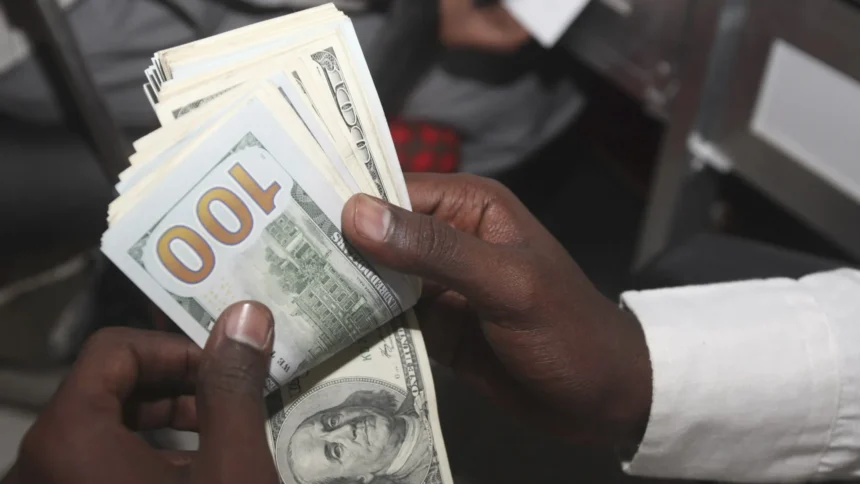The proposed 5% U.S. remittance tax by some lawmakers in the U.S. House of Representatives has reverberated across Africa with far-reaching implications for beneficiaries of diaspora remittances and economies on the continent.
Pan-Atlantic Kompass had earlier reported that the U.S. remittance tax bill was introduced by House Republicans on May 12, 2025. The bill targets money transfers sent abroad by non-citizens, potentially affecting millions of Nigerians and Africans who rely on these funds for household support, education, and healthcare.
Remittances from the Nigerians living abroad reached $20bn in 2023, according to the World Bank, slightly lower than the $21bn in 2022.
The flow is projected to reach $26bn in the next two years, making it a hard-to-ignore source of foreign income, something the Nigerian monetary authorities will likely want reflected in the value of the naira.
Already, there are growing concerns among experts that the proposed bill would harm Nigeria’s FX inflows.
Reacting to the proposal, the Group Managing Director of Cowry Assets Management Limited, Johnson Chukwu argued that the tax could push remitters toward informal, unregulated channels, increasing the risk of fraud and reducing transparency in Nigeria’s remittance ecosystem.
Adding that the U.S. remittance tax, if passed, could potentially disrupt Nigeria’s foreign exchange inflows and economic stability, Chukwu said: “The bill that is at the U.S National Assembly says that Americans, people who are American citizens, not necessarily born of American parentage, including naturalized Americans, and those who have American passports, won’t be subject to this tax.
“So, the implication is that those Nigerians who have become who have become naturalised can actually make remittances without being taxed.
“But the challenge is that they are now going to track remittances and begin to identify those who are making remittances that are not of American citizenship, which means those people are now exposed to the risk of deportation.” Chukwu, a financial analyst said while speaking on national TV network.
He continued: “America is actually the country with the highest outflow of domestic remitters; it is the country with the largest origination or the country with the highest origination of domestic remittances globally.
“So, people who are making remittances will be very careful that their monies are not tracked and then they are not identified as illegal and they deported.
“You’re going to see a lot of remittances going underground, going through the parallel market. The portion the Central Bank is tracking and trapping will become very inconsequential.
“And again, even when they want to make remittances, the 5% will reduce the money that will eventually come to the local economy.
“So, three things happen: Nigerians who do not have or who have not regularized their stay in countries like the US will find it difficult to make remittances because they don’t want to be tracked, traced and deported.
“Those who are legitimate Americans are also cautious of the fact that they’ll be looking over their shoulders because of the kind of policies that Donald Trump is coming up with.
Following the complications that Nigerian immigrants in the U.S. might experience while attempting to send money back home as a result of the proposed bill, Chukwu worries that “you’re going to see a reduction in remittances.”
Recall that the draft of the U.S. remittance tax specifies that the 5% tax will be imposed on the amount of each remittance transfer, paid by the sender, and remitted quarterly to the U.S. Treasury.
Should the bill scale through, verified U.S. citizens are exempt and can claim the tax as a credit, placing the financial burden primarily on immigrant communities, including Nigerians-cum-Africans.





